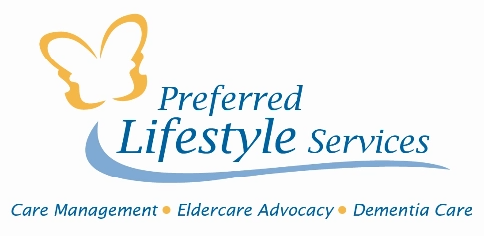“I know my parents need help and I keep trying but they won’t even let me help them go to the doctor. Pop just says, 'I’ll think about it and let you know in a few days.' He’s been 'letting me know' for six months.
The house is a mess and they won’t let anyone in to clean. I can’t believe I’m actually deserting Mom, but I can’t take the stress anymore. No matter how many times I say, ‘Mom, I’ll do that’ or ‘Mom, I’ll take that over’ she says, ’I don’t need help.’’
Yesterday I said, “I know you’re sick and in pain.” She yelled back, ‘So what? I’m not an infant! I can do things for myself. It’s your constant interference that’s making me sick.’ She threw me out and told me to not come back until I changed my attitude. Attitude change? I’m 53, not 12! It’s too toxic; whatever happens, she’s on her own.”
There are two intervention "givens:"
- The more help your mother needs, the more resistant she will be to accepting it.
- No good deed goes unpunished.
Preventative Interventions
If you look both ways before crossing a street, lock your doors at night, or refuse to eat spoiled food, you’re intervening to prevent problems. For your parent, Preventive Intervention may include:
- Estate planning to help protect your parent's financial future
- Advanced Directives to assure your parent's wishes are honored
- Appoint Healthcare Surrogate to act when your parent can no longer make decisions.
- Appoint Durable Power of Attorney to make legal/financial decisions if your parent is incapacitated.
- Add your name to your parent's bank and investment accounts so you have access to the funds for care if your parent becomes ill.
For all the above, it's best to consult a Trust & Estate or Elder Law attorney in the state where your parent resides.
Partial Interventions
As we age, it’s not unusual to need help in some areas and still remain functionally independent in most other areas of life. Partial Intervention is often all parents need to age at home. These examples will help you create other partial interventions:
- Providing transportation maintains Mom’s lifeline to food, doctors, and friends— all needed for independent living.
- Assisting with yard work, internal disrepair (loose tiles, burned out light bulbs), can help prevent accidents.
- Helping pay bills can prevent defaults on health/homeowners insurance and reduce exposure to exploitation and scams.
- Making extra portions of family dinners for Mom can help maintain her nutrition.
- A home care worker can help Mom maintain her hygiene and nutrition.
Gently explain to mom how accepting a little help now will help her remain independent in her home.
Total Intervention
If your parent is incapacitated (unable to make safe/sound decisions on her own behalf), contact a healthcare professional and an Elder Law attorney for guidance on Total Intervention. Log on to www.naela.org to find Board Certified Elder Law Attorneys.
Do not intervene alone: ask for help from loved ones and professionals and always give yourself the credit you deserve for taking on this difficult job.
Trust Yourself. You Have the Knowledge, Insight, & Power to make the right decisions for you and your parent. ©


